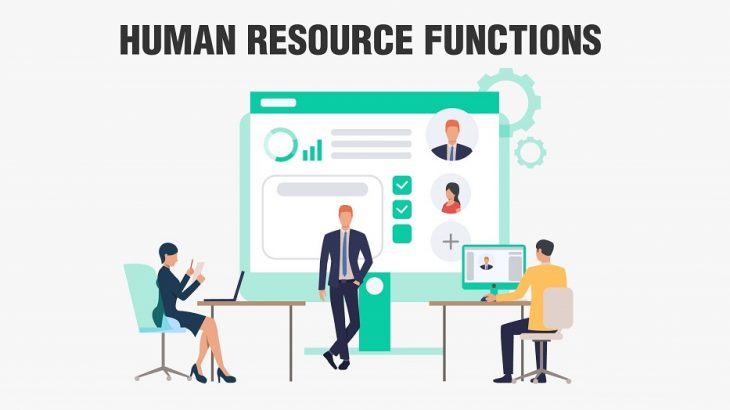Automating the Recruitment Activities and Tasks
Much of the work that the HR Function does is routine and repetitive in nature. Starting with the recruitment process, including training and development, as well as performance management, the work that the HR does consists of manual and routine tasks that can be automated and hence, save time in the process.
For instance, the recruitment value chain consists of placing ads in various media to attract potential employees, receiving the resumes from them, matching the resumes with the job descriptions through keyword parsing and other aspects, sending the resumes to the appropriate managers for further processing, shortlisting candidates for interviews, and lastly, arranging for written tests and face to face interviews.
Most of these tasks can be automated and by using advanced Artificial Intelligence enabled tools and software; the HR function can indeed save time and actualize efficiencies from the economies of scale and synergies from the integration of the end to end value chain of the recruitment process.
For instance, apart from placing ads and other such details about the vacancies in the various media, the recruitment process also consists of receiving the resumes and matching them with the job descriptions.
This is a routine and repetitive activity which when done manually takes a lot of time in addition to devoting dedicated staff and other resources.
There are many tools and software in the market that automate this task wherein they use AI and Big Data as well as Data Analytics to pars the resumes and find matching keywords with the job descriptions. Indeed, this key task that is often time-consuming can be automated thereby saving time.

Also, the HR function can reach out to the potentially unlimited number of applicants through the use of such tools and software as once this task is automated; then it becomes easier to “blast the resumes” and process them on a mass scale.
What is Resume Blasting and How Automation Makes it Possible
The term Resume Blasting is often used by recruiters and applicants alike as well as by websites and job portals to signify the mass sending and receiving of the resumes.
Indeed, Resume Blasting means that candidates can send their resumes to unlimited number of recruiters in addition to the recruiters receiving such resumes on a mass scale. This activity is mostly automated in most companies, and when the task of matching the resumes with the job descriptions and then sending them to the appropriate managers is automated, it leads to further time savings as well as efficiencies from the economies of scale. Tools that use AI often parse through the resumes for matching the skills with the job descriptions.
Automating Resume Matching and Short Listing as well as Interview Calls
In addition, these tools also use Big Data Analytics to “predict” which applicants have the right skills for the jobs.
Apart from this, such software also “routes” and “queues” resumes that match the descriptions to be sent to the appropriate managers for further processing.
Indeed, even the managers can save time by using these tools to “winnow” the resumes and then “narrow” them down to a few so that they need not spend too much time on this task.
Further, once the resumes are shortlisted, the next task of contacting the candidates can also be automated whereby mass mailers can be used to inform the candidates about the next round in the selection process, whether it is a written test or a face to face interview.
Apart from this, the other tasks that lead right up to the actual interview and fitment rounds can also be automated thereby ensuring that the HR Function focuses on value building and concentrates on higher value-adding activities.
Indeed, such tools and software save the HR Function a lot of time with some industry experts reporting that nearly 50-60% of the time that the HR function spends can be saved in the process. This means that automating routine and repetitive tasks can indeed result in efficiencies and synergies for the HR Function.
Automating Payroll and Performance Management
Though the recruitment process is usually the task in the HR function that is often automated, it is also the case that the other aspects of the HR work such as routine performance management and payroll can even be automated.
Indeed, the fact that Payroll is automated in most organizations means that even the other tasks that are driven and performed on a mass scale can be automated as well. As technology often creates value through providing economies of scale due to its ability to scale up, it also actualizes synergies from integration.
For instance, when disparate and separate tasks that the HR does are automated, then the integration often creates value that was hitherto hidden and hence, can lead to significant benefits for contemporary organizations.
Automation of Noncore Activities and Processes Leads to Value Creation
Lastly, there is a global trend towards automating all the noncore activities and support functions in contemporary organizations, and this is what is driving the adoption of AI and Analytics powered tools and software.
Thus, it is clear that while the HR function can be trimmed and some staff let go due to automation, the benefits are that the remaining staff can focus on higher value-adding activities not to mention leaps in productivity and efficiency.
To conclude, most organizations typically have lean HR functions that are staffed with minimal people mainly because the tasks that this function does are largely routine and hence, they focus on automating such tasks and ensuring that the key personnel focuses on value addition to the organizations.





